- Clone
- A15137E (See other available formats)
- Regulatory Status
- RUO
- Other Names
- Signal transducer and activator of transcription 6, IL-4 Stat
- Isotype
- Mouse IgG1, κ
- Ave. Rating
- Submit a Review
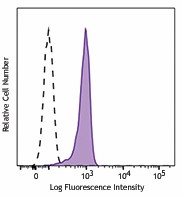
| Cat # | Size | Price | Quantity Check Availability | Save | ||
|---|---|---|---|---|---|---|
| 686007 | 25 tests | 113€ | ||||
| 686008 | 100 tests | 268€ | ||||
STAT6 is a member of the signal transducer and activator of transcription (STAT) family, activating gene expression in response to IL-4 and IL-13 stimulation. Upon cytokine stimulation, the receptor is phosphorylated by the associated Janus Kinases (Jak), followed by recruiting cytoplasmic STAT6. The Tyr641 residue of STAT6 is, in turn, phosphorylated by Jak. Phosphorylated STAT6 forms homodimers, translocates to the nucleus, and regulates transcription of target genes. STAT6 plays crucial roles in differentiation of T helper 2 (Th2) cells, class switch of immunoglobulins in B cells, expression of cell surface markers such as MHC class II, and the development of allergic inflammation.
Product DetailsProduct Details
- Verified Reactivity
- Human
- Antibody Type
- Monoclonal
- Host Species
- Mouse
- Immunogen
- Human STAT6 peptide phosphorylated at Tyr 641
- Formulation
- Phosphate-buffered solution, pH 7.2, containing 0.09% sodium azide and BSA (origin USA)
- Preparation
- The antibody was purified by affinity chromatography and conjugated with Alexa Fluor® 488 under optimal conditions.
- Concentration
- Lot-specific (to obtain lot-specific concentration and expiration, please enter the lot number in our Certificate of Analysis online tool.)
- Storage & Handling
- The antibody solution should be stored undiluted between 2°C and 8°C, and protected from prolonged exposure to light. Do not freeze.
- Application
-
ICFC - Quality tested
- Recommended Usage
-
Each lot of this antibody is quality control tested by intracellular flow cytometry using our True-Phos™ Perm Buffer in Cell Suspensions Protocol. For flow cytometric staining, the suggested use of this reagent is 5 µl per million cells in 100 µl staining volume or 5 µl per 100 µl of whole blood.
* Alexa Fluor® 488 has a maximum emission of 519 nm when it is excited at 488 nm.
Alexa Fluor® and Pacific Blue™ are trademarks of Life Technologies Corporation.
View full statement regarding label licenses - Excitation Laser
-
Blue Laser (488 nm)
- Application Notes
-
Human STAT6 has three isoforms; the molecular weights are 94, 82 and 74kD. The immunogen (phosphorylated peptide) is shared by these three isoforms. This antibody recognizes STAT6 Phospho (Tyr641) in all three isoforms. The predominant band detected is at 94 kD.
Clone A15137E does not react with mouse.
This clone is not recommended for ChIP (Chromatin Immunoprecipitation) assays (as determined by in-house testing). - RRID
-
AB_2632680 (BioLegend Cat. No. 686007)
AB_2632681 (BioLegend Cat. No. 686008)
Antigen Details
- Structure
- 847 amino acids with a predicted molecular weight of 94 kD. Contains a SH2 domain responsible for phosphor-Tyrosine binding and dimerization.
- Distribution
-
Cytoplasm; translocates to the nucleus when phosphorylated.
- Function
- STAT6 is a transcription factor, mediating IL-4 and IL-13 signaling. While STAT6 is widely expressed in human tissues, it exhibits elevated expression in peripheral blood lymphocytes, colon, intestine, ovary, prostate, thymus, spleen, kidney, liver, lung, and placenta. Following phosphorylation by Janus kinases, STAT6 translocates to the nucleus where it regulates gene transcription.
- Interaction
- STAT6 interacts with CBP/p300 and NCOA1. Forms a homodimer or a heterodimer with other STAT family members.
- Cell Type
- B cells
- Biology Area
- Cell Biology, Immunology, Signal Transduction
- Molecular Family
- Nuclear Markers, Phospho-Proteins
- Antigen References
-
1. Goenka S, et al. 2011. Immunol. Res. 50:87.
2. Wurster AL, et al. 2000. Oncogene 19:2577.
3. Akira S. 1999. Stem Cells 17:138.
4. Zamorano J, et al. 2005. J. Immunol. 174:2843.
5. David M, et al. 2001. Oncogene 20:6660.
6. Takeda K, et al. 1996. Nature 380:627. - Gene ID
- 6778 View all products for this Gene ID
- UniProt
- View information about STAT6 Phospho Tyr641 on UniProt.org
Related Pages & Pathways
Pages
Related FAQs
Other Formats
View All STAT6 Phospho (Tyr641) Reagents Request Custom Conjugation| Description | Clone | Applications |
|---|---|---|
| Purified anti-STAT6 Phospho (Tyr641) | A15137E | WB,ICFC |
| PE anti-STAT6 Phospho (Tyr641) | A15137E | ICFC |
| PerCP/Cyanine5.5 anti-STAT6 Phospho (Tyr641) | A15137E | ICFC |
| Alexa Fluor® 488 anti-STAT6 Phospho (Tyr641) | A15137E | ICFC |
| PE/Cyanine7 anti-STAT6 Phospho (Tyr641) | A15137E | ICFC |
| Alexa Fluor® 647 anti-STAT6 Phospho (Tyr641) | A15137E | ICFC |
| APC anti-STAT6 Phospho (Tyr641) | A15137E | ICFC |
| Brilliant Violet 421™ anti-STAT6 Phospho (Tyr641) | A15137E | ICFC |
Customers Also Purchased
Compare Data Across All Formats
This data display is provided for general comparisons between formats.
Your actual data may vary due to variations in samples, target cells, instruments and their settings, staining conditions, and other factors.
If you need assistance with selecting the best format contact our expert technical support team.
-
Purified anti-STAT6 Phospho (Tyr641)
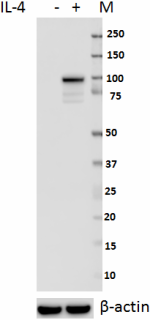
Total cell lysate (15 µg protein) from non-treated and 100 n... 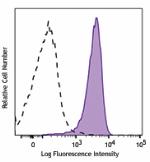
Human peripheral blood lymphocytes were stimulated with (fil... -
PE anti-STAT6 Phospho (Tyr641)
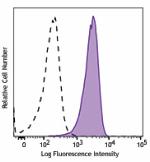
Human peripheral blood lymphocytes were stimulated with (fil... -
PerCP/Cyanine5.5 anti-STAT6 Phospho (Tyr641)
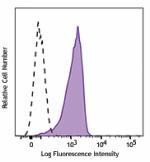
Human peripheral blood lymphocytes were stimulated with (fil... -
Alexa Fluor® 488 anti-STAT6 Phospho (Tyr641)
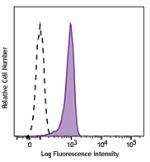
Human peripheral blood lymphocytes were stimulated with (fil... -
PE/Cyanine7 anti-STAT6 Phospho (Tyr641)
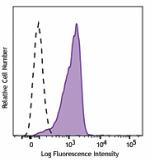
Human peripheral blood lymphocytes were stimulated with (fil... -
Alexa Fluor® 647 anti-STAT6 Phospho (Tyr641)
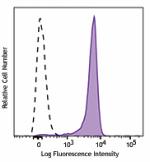
Human peripheral blood lymphocytes were stimulated with (fil... -
APC anti-STAT6 Phospho (Tyr641)
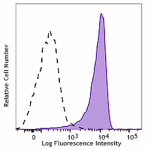
Human peripheral blood lymphocytes were stimulated with (fil... -
Brilliant Violet 421™ anti-STAT6 Phospho (Tyr641)
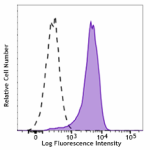
Human peripheral blood lymphocytes were stimulated with (fil...

 Login / Register
Login / Register 










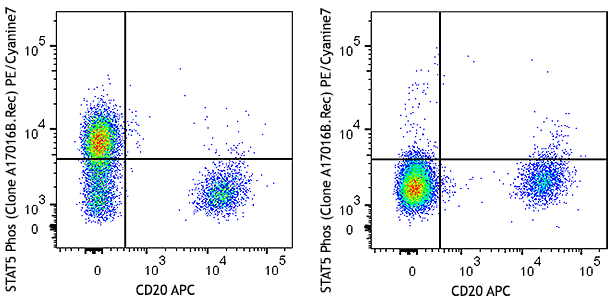
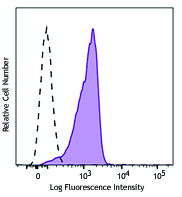
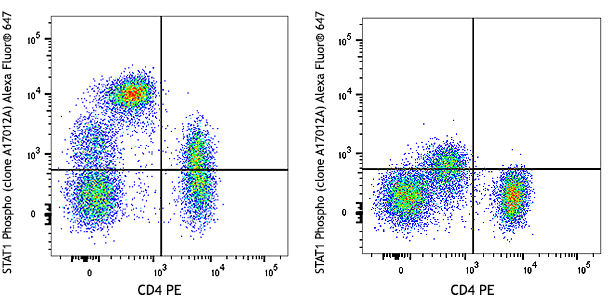
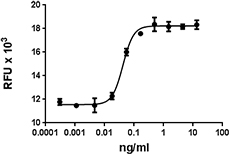







Follow Us